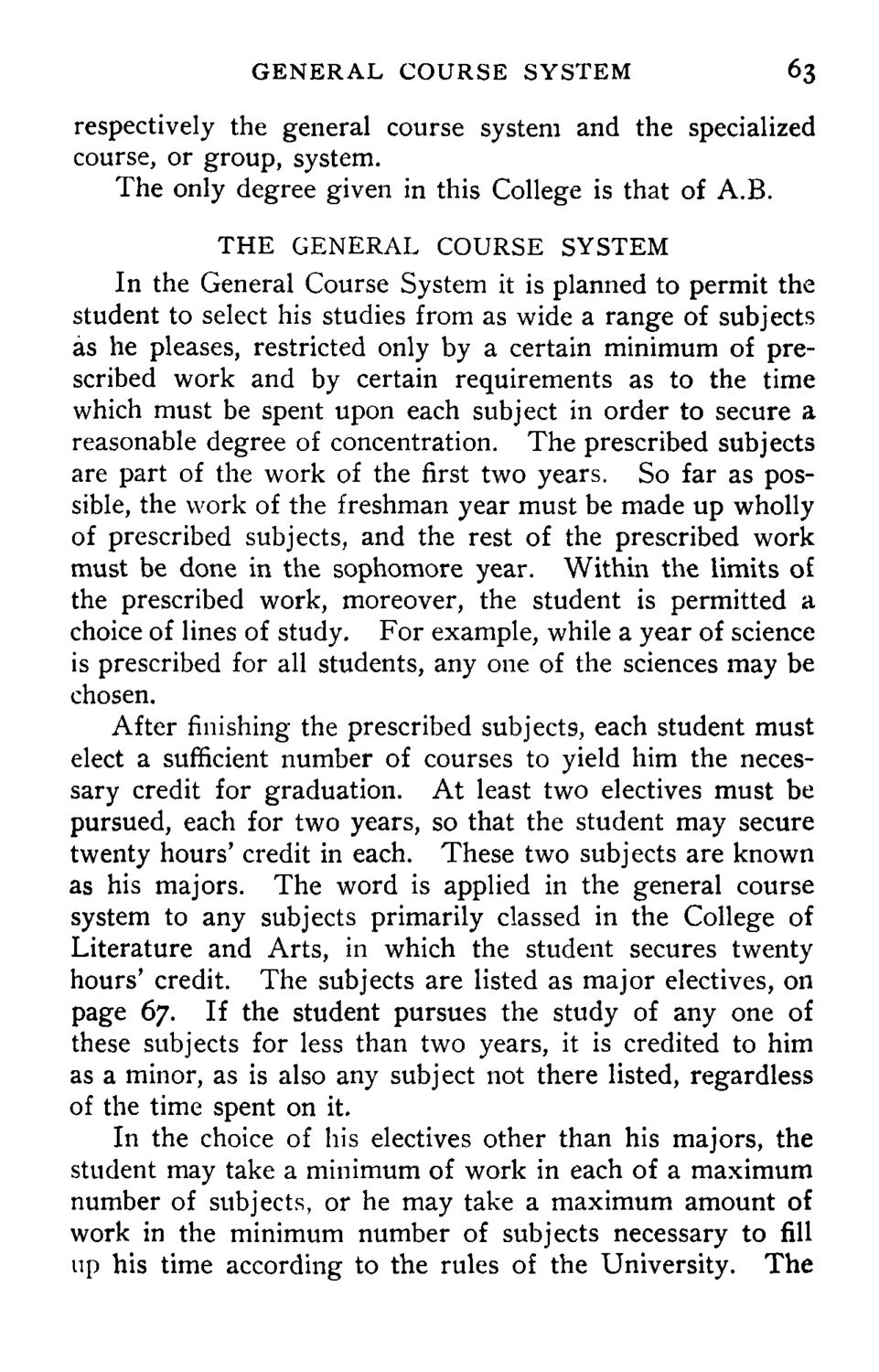| |
| |
Caption: Course Catalog - 1899-1900
This is a reduced-resolution page image for fast online browsing.

EXTRACTED TEXT FROM PAGE:
GENERAL COURSE SYSTEM 63 respectively the general course system and the specialized course, or group, system. The only degree given in this College is that of A.B. THE GENERAL COURSE SYSTEM In the General Course System it is planned to permit the student to select his studies from as wide a range of subjects as he pleases, restricted only by a certain minimum of prescribed work and by certain requirements as to the time which must be spent upon each subject in order to secure a reasonable degree of concentration. The prescribed subjects are part of the work of the first two years. So far as possible, the work of the freshman year must be made up wholly of prescribed subjects, and the rest of the prescribed work must be done in the sophomore year. Within the limits of the prescribed work, moreover, the student is permitted a choice of lines of study. For example, while a year of science is prescribed for all students, any one of the sciences may be chosen. After finishing the prescribed subjects, each student must elect a sufficient number of courses to yield him the necessary credit for graduation. At least two electives must be pursued, each for two years, so that the student may secure twenty hours' credit in each. These two subjects are known as his majors. The word is applied in the general course system to any subjects primarily classed in the College of Literature and Arts, in which the student secures twenty hours' credit. The subjects are listed as major electives, on page 67. If the student pursues the study of any one of these subjects for less than two years, it is credited to him as a minor, as is also any subject not there listed, regardless of the time spent on it. In the choice of his electives other than his majors, the student may take a minimum of work in each of a maximum number of subjects, or he may take a maximum amount of work in the minimum number of subjects necessary to fill up his time according to the rules of the University. The
| |